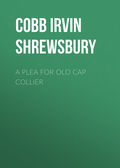
Cobb Irvin Shrewsbury
Speaking of Prussians–
IV
When I think back on those first stages – and in some respects the most tragic stages – of the great war, I do not see it as a thing of pomp and glory, of splendid panorama, pitched on a more impressive scale than any movement ever was in all the history of mankind. I do not, in retrospect, see the sunlight glinting on the long, unending, weaving lanes of bayonets; or the troops pouring in grey streams, like molten quicksilver, along all those dusty highroads of Northern Europe; or the big guns belching; or the artillery horses going galloping into action; or the trenches; or the camps; or the hospitals; or the battlefields. I see it as it is reflected in certain little, detached pictures – small-focused, and incidental to the great horror of which they were an unconsidered part – but which, to me, typify, most fitly of all, what war means when waged by the rote and rule of Prussian militarism upon the civilian populace of an invaded country.
I see again the little red-bearded priest of Louvain who met us on the day we first entered that town; who took us out of the panic of the street where the inhabitants fluttered about in aimless terror, like frightened fowl in a barnyard; and who led the way for us through a little wooden gateway, set in the face of a high brick wall. It was as though we were in another world then, instead of the little world of panic and distress we had just quit. About a neglected tennis court grew a row of pear trees, and under a laden grape arbour at the back sat four more priests, all in rusty black gowns. They got up from where they sat and came and spoke to us, and took us into a little cellar room, where they gave us a bottle of their homemade wine to drink and handfuls of their ripened pears to eat, and tried to point out to us, on a map, where they thought the oncoming Germans might be, none of us knowing that already uhlan scouts were entering the next street but one. As we were leaving, the eldest priest took me by the coat lapels and, with his kind, faded old eyes brimming and his gentle old face quivering, he said to me in broken English:
"My son, it is not right that war should come to Belgium. We had no part in the quarrel of these, our great neighbours. My son, we are not a bad people here – do not believe them should they tell you so. For I tell you we are a good people. We are a very good people. All the week my people work very hard, and on Sunday they go to church; and then perhaps they go for a walk in the fields. And that, to them, is all they know of life.
"My son," he said, "you come from a great country – you come from the greatest of all the countries. Surely your country, which is so great and so strong, will not let my little country perish from off the face of the earth?"
Because we had no answer for him we went away. And when, six weeks later, I returned to ruined and devastated Louvain, I picked my way through the hideous wreckage of the streets to the little monastery again. Behold! the brick wall was a broken heap of wrecked, charred masonwork; and the pear trees were naked stumps, which stood up out of a clay waste; and the little cellar room, where we ate our pears and drank our wine, was a hole in the ground now, full of ill-smelling rubbish and fouled water, with the rotted and bloated corpse of a dead horse floating in the water, poisoning the air with the promise of pestilence. And the priests who once had lived there were gone; and none in all that town knew where they had gone.
Always, too, when thinking of the war, I think of the refugees I saw, but mostly of those I saw after Antwerp had fallen in the early days of October and I was skirting Holland on my way back out of Germany to the English Channel. I had seen enough refugees before then, God knows! – men and women and children, old men and old women and little children and babies in arms, fleeing by the lights of their own burning houses over rainy, wind-swept, muddy roads; vast caravans of homeless misery, whose members marched on and on until they dropped from exhaustion. And when they had rested a while at the miry roadside, with no beds beneath them but the earth and no shelters above them but the black umbrellas to which they clung, they got up and went on again, with no destination in view and no goal ahead; but only knowing, I suppose, that what might lie in front of them could not be worse than what they left behind them. But never – until after Antwerp – did there seem to be so many of them, and never did their plight seem so pitiable. Over every road that ran up out of Belgium into Holland – and that in this populous corner of Europe meant a road every little while – they poured all day in thick, jostling, unending, unbroken streams. I marked how the sides of every wayside building along the Dutch frontier was scrawled over with the names of hundreds of refugees, who already had passed that way; and, along with their names, the names of their own people, from whom they were separated in the haste and terror of flight, and who – by one chance in a thousand – might come that way and read what was there written, and follow on.
This was the larger picture. Now for a small corner of the canvas: I remember a squalid little cowshed in a little Dutch town on the border, just before dusk of a wet, raw autumnal night. Under the dripping eaves of that cowshed stood an old man – a very old man. He must have been all of eighty. His garments were sopping wet, and all that he owned now of this world's goods rested at his feet, tied up in the rags of an old red tablecloth. In one withered, trembling old hand he held a box of matches, and in the other a piece of chalk. With one hand he scratched match after match; and with the other, on the wall of that little cowshed, he wrote, over and over and over again, his name; and beneath it the name of the old wife from whom he was separated – doubtlessly forever.
Possibly these things might have come to pass in any war, whether or not Germans were concerned in making that war; probably they should be included among the inevitable by-products of the institution called warfare. That, however, did not make them the less sorrowful.
V
The point I am trying to make is this: That, seeing such sights, and a thousand more like them, I could picture the same things – and a thousand worse things – happening in my own country. With better reason, I to-day can picture them as happening in my own country; and in all fairness I go further than that and say that I can conceive them as being all the more likely to happen should the invading forces come at us under that design of a black vulture which is known as the Imperial Prussian Eagle. Given similar conditions and similar opportunities, and I can see Holyoke, Massachusetts, or Charleston, South Carolina, razed in smoking ruins, as Louvain or as Dinant was. I can see the mayor of Baltimore being put to death by drum-head court-martial because some inflamed civilian of his town fired from a cottage window at a Pomeranian grenadier. I can see in Pennsylvania congressmen and judges and clergymen and G. A. R. veterans held as hostages and as potential victims of the firing squad, in case some son or some grandson of old John Burns, of Gettysburg, not regularly enrolled, takes up his shotgun in defence of his homestead. I can see a price put on the head of some modern Molly Pitcher, and a military prison waiting for some latter-day Barbara Frietchie. For we must remember that what we Americans call patriots the anointed War Lord calls franc-tireurs, meaning bushwhackers.
I do not believe I personally can be charged with an evinced bias against the German Army, as based on what I saw of its operations in the opening months of the war. Because I had an admiration for the courage and the fortitude of the German common soldier, and because I expressed that admiration, I was charged with being pro-German by persons who seemingly did not understand or want to understand that a spectator may admire the individual without in the least sympathising with the causes which sent him into the field. And at a time when this country was filled with stories of barbarities committed upon Belgian civilians by German soldiers – stories of the mutilating of babies, of the raping of women, of the torturing of old men – I was one of five experienced newspapermen who, all of our own free will and not under duress or coercion, signed a statement in which we severally and jointly stated that, in our experiences when travelling with or immediately behind the German columns through upward of a hundred miles of Belgian territory, we had been unable to discover good evidence of a single one of these alleged atrocities. Nor did we.
What I tried to point out at the time – in the fall of 1914 – and what I would point out again in justice to those who now are our enemies, is that identically the same accounts of atrocities which were told in England and in America as having been perpetrated by Germans upon Belgians and Frenchmen, were simultaneously repeated in Germany as having been perpetrated by Belgians and Frenchmen upon German nuns and German wounded; and were just as firmly believed in Germany as in America and Britain, and had, as I veritably believe, just as little foundation of fact in one quarter as in the other quarters.
Indeed, I am willing to go still further and say, because of the rigorous discipline by which the German common soldier is bound, that in the German occupation of hostile territory opportunities for the individual brute or the individual degenerate to commit excesses against the individual victim were greatly reduced. Of course there must have been sporadic instances of hideous acts – there always have been where men went to war; but I have never been able to bring myself to believe that such acts could have been a part of a systematic or organised campaign of frightfulness. There was plenty of the frightfulness without these added horrors.
But I was an eyewitness to crimes which, measured by the standards of humanity and civilisation, impressed me as worse than any individual excess, any individual outrage, could ever have been or can ever be; because these crimes indubitably were instigated on a wholesale basis by order of officers of rank, and must have been carried out under their personal supervision, direction and approval. Briefly, what I saw was this: I saw wide areas of Belgium and France in which not a penny's worth of wanton destruction had been permitted to occur, in which the ripe pears hung untouched upon the garden walls; and I saw other wide areas where scarcely one stone had been left to stand upon another; where the fields were ravaged; where the male villagers had been shot in squads; where the miserable survivors had been left to den in holes, like wild beasts.
Taking the physical evidence offered before our own eyes, and buttressing it with the statements made to us, not only by natives but by German soldiers and German officers, we could reach but one conclusion, which was that here, in such-and-such a place, those in command had said to the troops: "Spare this town and these people!" And there they had said: "Waste this town and shoot these people!" And here the troops had discriminately spared, and there they had indiscriminately wasted, in exact accordance with the word of their superiors.






